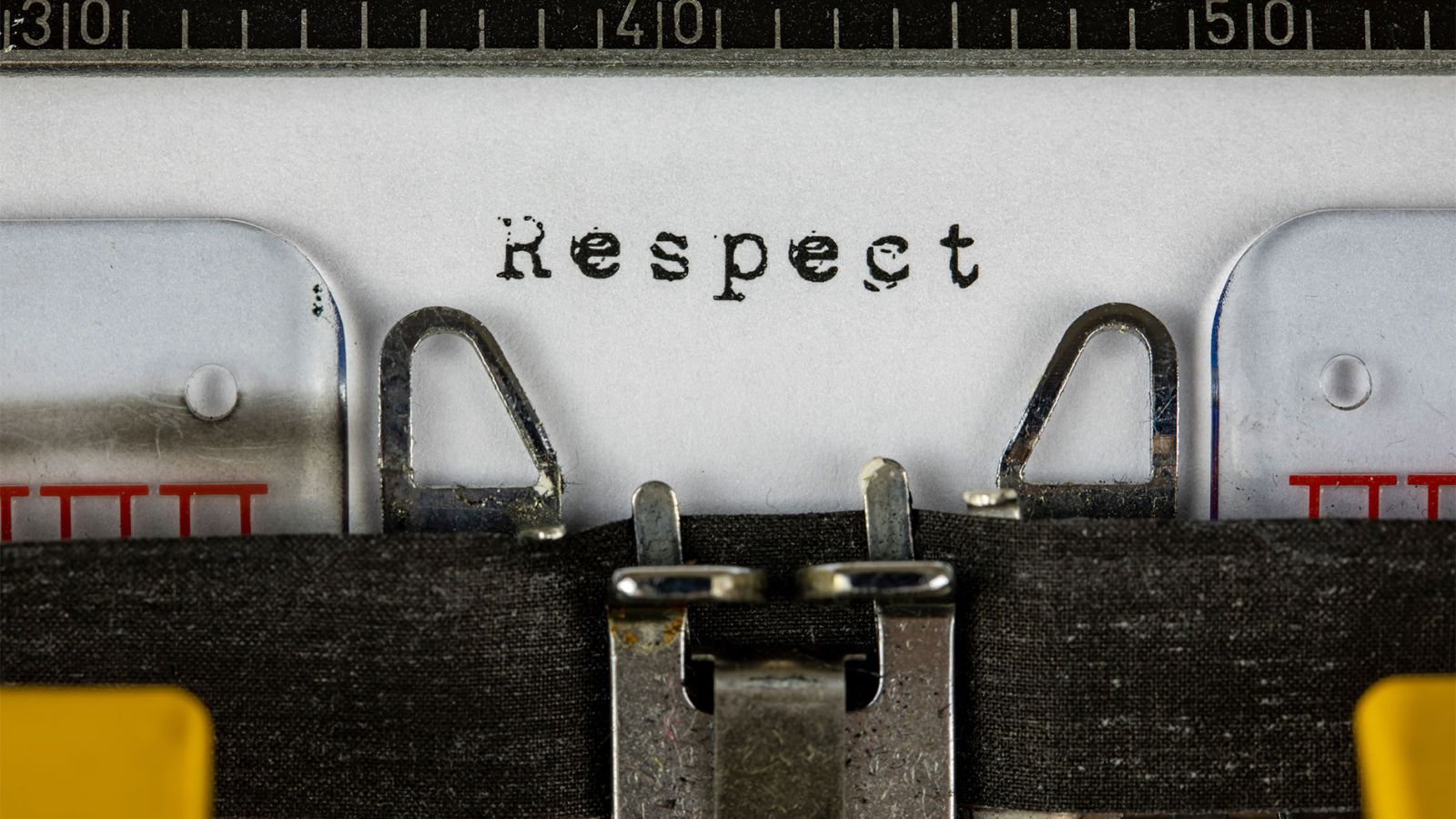Profound Words Concerning Groups and Parties
Al-ʿAllāmah Ṣāliḥ ibn Fawzān al-Fawzān


The innovation is more severe because innovation is worse than disobedience, and innovation is more beloved to Shayṭān than disobedience because the disobedient one may repent.
[Q]: We hear about what are called Islamic Jamaa’aat in this age in various parts of the world. So what is the basis of this term? Is it permissible to go along with then and assist them if they do not have an innovation?
[A]: The Messenger ﷺ informed and explained to how we must interact. He did not leave anything that brings his Ummah closer to Allāh, except that he explained it to them. And he ﷺ leave anything that takes his Ummah farther away from Allāh, except that he clarified to them, and from that is this issue. The Prophet ﷺ said, “So whosoever from amongst you lives long, then he shall see much differing.” However, what is the treatment for this new occurence? He ﷺ continued, “So hold firmly to my Sunnah and the Sunnah of the Rightly-Guided Caliphs after me. Hold onto it with your molar teeth, and beware of newly invented affairs. Verily every newly invented affair is an innovation and every innovation is in the Fire.”2 So who from amongst these jamāʿāt3 is upon the guidance of the Messenger ﷺ and the Companions, especially upon the guidance of the of the Rightly-Guided Caliphs and the virtuous generations? So which jamāʿah is upon this manhaj (methodology) so that we may be with this jamāʿah, ascribe ourselves to it and work with it?
So whatever opposes that guidance of the Messenger ﷺ, then we must avoid it, even if it is called an ‘Islamic Jamāʿah.’ A term is not defined by names, it is defined by its realities. The names could b magnificent, but the thing itself could be futile, not consisting of anything, or being false. The Messenger of Allāh ﷺ said, “The Jews split up into seventy-one sects, and the Christians split up into seventy-two sects. And my Ummah shall split up into seventy-three sects, all of them being in the Fire except one.” We said, ‘Which one is that, O Messenger of Allāh?’ He said, “The one that follows what I am upon and my Companions.”4
The path is clear, we must join the jamāʿah which possesses this sign; whoever is upon the likes of what the Messenger ﷺ and his Companions were upon. So they are the true Islamic Jamāʿah. As for whoever opposes this manhaj (methodology), and traverses upon another manhaj, then he is not from us and we are not from him. We do not attach ourselves to him, nor can he attach himself to us; and that is not to be called a jamāʿah. It is only to be called a sect from the astray sects, because the Jamāʿah cannot be anything except the truth. So it is that which the people have united upon. As for the falsehood, then it divides and it does not unite. Allāh the Exalted said,
“If they turn away, then they are only in opposition.”
[Sūrah al-Baqarah 2:137]
[Q]: Which one deserves a more severe punishment: disobedience or innovation?
[A]: The innovation is more severe, because innovation is worse than disobedience and innovation is more beloved to Shayṭān than disobedience, because the disobedient one may repent.5 As for the innovator, then it is highly unlikely that he will repent, because he thinks that he is upon the truth, unlike the disobedient one. So the disobedient one knows that he is sinning and that he is upon disobedience. So due to that, innovation – and refuge is sought from Allāh – is more evil than disobedience. Due to this, the Salaf used to warn against sitting with the innovators,6 because one might become affected by sitting with them, and their danger is great. There is no doubt that innovation is more evil than disobedience, and the danger of innovating is greater upon the people than the danger of sinning.7 Due to this, the Salaf said, “Doing a little of the Sunnah is better than striving hard upon innovation.”8
[Q]: Is the one who joins one of these jamāʿāt to be deemed an innovator?
[A]: This depends upon the nature of the jamāʿāt. So the one who joins one of those jamāʿāt that have elements of opposition to the Book and the Sunnah, he is an innovator.9
[Q]: What is your opinion concerning the jamāʿāt as a general ruling?
[A]: Everyone who opposes the jamāʿah of Ahl al-Sunnah, then he is astray. There is no jamāʿah according to us, except one: it is Ahl al-Sunnah wal-Jamāʿah. 10 Whatever opposes this Jamāʿah, then it is in opposition to the manhaj of the Messenger ﷺ. We also say, everyone that opposes Ahl al-Sunnah wal-Jamāʿah, then he is from the people of desires. And elements of opposition vary in ruling of them being misguided or outside of Islām with relation to how large, small, far or near they are from the truth.
[Q]: Can one mix with the jamāʿāt, or are they to be boycotted?
[A]: If the purpose behind mixing is to give them daʿwah – from those amongst them who have knowledge and insight 11 – to hold firmly to the Sunnah and to leave off errors, then this is good and is from calling to Allāh. As for when mixing with them results in socializing and accompanying them without daʿwah and clarification, then this is not permissible. So it is not permissible for the person to mix with the opponents, except when a clear Sharīʿah benefit can be seen due to their call to the correct Islām and in clarification of the truth to them so that they may return.12 It is just like when Ibn Masʿūd (raḍī Allāhu ʿanhu) when to the innovators in the mosque and stood in front of them and opposed their innovation. And Ibn ʿAbbās (raḍī Allāhu ʿʿʿanhumā) when he went to the Khawārij and debated with them and refuted their doubt and some from amongst them returned (to the truth). So if mixing with them can be done upon this way, then it is desired. If their falsehood becomes burdensome, then it is obligatory to boycott, banish and perform Jihād against them for the sake of Allāh (by clarifying their errors, extremism or negligence).
[Q]: Do this jamāʿāt enter into the seventy-two destroyed sects?
[A]: Yes, everyone who opposes Ahl al-Sunnah wal-Jamāʿah from those who ascribe themselves to Islām in daʿwah (calling to Allāh), or in ʿaqīdah (creed), or in anything from the foundations of īmān (faith), then he enters into the seventy-three sects and is under the threat of Allāh. And he will be from amongst those who have been rebuked and promised a punishment in accordance to his opposition. 13
Endnotes:
[1] The following is taken from al-Ajwibatul-Mufeedah (p. 6-12); Shaykh Ṣāliḥ Ibn Fawzān said on (p. E) of this book, “The praise is for Allāh, and may Prayers and Peace be upon our Prophet, Muḥammad, and upon his Family and his Companions. To Proceed: So I approve the publishing of al-Ajwibatul-Mufeedah ’an As‘ilatil-Manaahijil-Jadeedah which contains my answers and notes from the brother, Jamāl Ibn Fareehaan al-Ḥārithee. And I hope that it is of benefit in explaining aspects of the truth which have been hidden from some of the people today. And may the Prayers and Peace of Allāh be upon our Prophet, Muḥammad, his Family and his Companions. Signed: Ṣāliḥ Ibn Fawzān Ibn ’ʿAbdullāh al-Fawzān 18/4/1417.”
[2] Ṣaḥīḥ: This narration is has been authenticated through various paths. It is related by Abū Dāwūd (no. 4607), al-Tirmidhī (no. 2676), Ibn Mājah (no. 34). It was authenticated by Shaykh al-Albānī in al-Irwá‘(no. 2400).
[3] It is better to label very group that opposes the Book and the Sunnah upon the methodology of the Salaf al-Ṣāliḥ as sects. This is the Sharīʿah term for them, as the Messenger of Allāh ﷺ labeled them in the following ḥadīth of sects. As for the jamāʿāt, then there are none, except the Jamāʿah of the Muslims, as is pointed out in the ḥadīthof sects, and Allāh knows best.
[4] Related by al-Tirmidhī (no. 2641), al-Ḥākim (1/129). It has witnesses, refer to Tuhfatul-Aḥwadhī(7/398), Ibn Mājah (no. 3992) and Abū Dāwūd (no. 4597).
[5] Sufyān al-Thawrī (d.167H) – raḥimahullāh – said, “Innovation is more beloved to Iblīs than disobedience, since the disobedient one may repent from it, yet innovation is not repented from.” Majmūʿ al-Fatāwá (11/472). The Prophet ﷺ said, “Verily Allāh has prevented repentance from every person of innovation.” It was authenticated by Shaykh al-Albānī in Silsilah al-Aḥādīth al-Ṣaḥīḥah (no. 1620).
[6] Imām al-Ḥasan al-Baṣrī (d.110H) – raḥimahullāh – said, “Do not sit with the people of innovation since they will put a disease in your heart.” Refer to al-I’tisaam (1/172) of al-Shāṭibī with the checking of Saleem al-Hilālee, and al-Bidaʿ wa-al-Naḥī ’anhaa (p. 54) of Ibn Waḍḍāh. And al-Shāṭibī (d.790H) – raḥimahullāh – said, “So verily the Saved Sect – and they are Ahl al-Sunnah wal-Jamāʿah – commanding enmity towards the people of innovations, and driving them away and torturing them by way of fighting them. Indeed, the Scholars warned against sitting and accompanying them.” I say, may Allāh bestow mercy upon the Salaf, they did not abandon a person of innovation, except that they had subdued him and warned against him.
[7] Shaykh al-Islām Ibn Taymīyyah (d.728H) with respect to the danger of the people of innovation, “If Allāh had not given importance to defending against the harm of these people [i.e. the people of innovation] the Religion would have become corrupted. Their harm is greater than the harm of the people of war, since these people will not corrupt the hearts, except after some time. As for these people (the people of innovation) then they corrupt the hearts from the very beginning.” Majmūʿ al-Fatāwá (27/232)
[8] This is a statement that has come from Ibn Masʿūd (raḍī Allāhu ʿanhu). Refer to al-Lālikaa‘ee (1/188), al-Ibānah (1/320) and al-Sunnah (p. 30) of Ibn Naṣr.
[9] Shaykh Bakr Ibn ’ʿAbdullāh Abū Zayd said in his book, Hukmul-Intimaa‘ (p. 96-97), “It is not permissible to set forth a person for the Ummah and to call to his path, and to form alliances and enmity based upon him, except for our Prophet and Messenger, Muḥammad ﷺ. So whoever puts forth someone other than him, then he is an astray innovator.” And Shaykh al-Islām Ibn Taymīyyah – raḥimahullāh – said, “It is not for anyone to set forth a person other than the Prophet ﷺ, for the Ummah and to call to his path and to form alliance and enmity based upon him. It is not for anyone to set forth any speech for the Ummah other than the speech of Allāh and His Messenger and what the Ummah has consensus upon. Rather, this is from the actions of the people of innovation who set forth a person and some speech for themselves by which they divide the Ummah, forming alliance and enmity based upon that speech.” Shaykh Bakr said commenting upon this statement of Shaykh al-Islām, “This is the condition of many of the Islamic jamāʿāt and parties today. They set forth personalities as guides for themselves. So they form alliances with their allies and they have enmity towards their enemies. And they follow them in everything they do, without referring back to the Book and the Sunnah, and without asking them for proofs for what they say or do.” End of quote from the book, Hukmul-Intimaa‘.
[10] So they are the Taa‘ifatul-Mansūrah (the Victorious Group), the Firqatun-Naajiyah (Saved-Sect), Ahlul-Ḥadīth, Ahlul-’Ilm (people of knowledge). From them, upon the likes of their way, are the Four Imāms for whom Imāmate has been testified to, and others who were in their generation. Then there are those who followed them traversing their methodology, even if he came long after their era. As for referring to these sects that oppose the one Jamāʿah of the Muslims as jamāʿāt, then that is not correct as I have mentioned previously. Rather, it is to be said about them: sects (firaq) and parties (ahzaab).
[11] This is correct in connection to individuals. So it is possible to call and affect them. As for changing the manhaj of, and affecting all groups, then this is not possible. Rather, they will end up affecting and changing the one who wished to affect them. So these sects do not generally leave their daʿwah from the teachings of their leaders, such as the sect of al-Ikhwān-Muslimīn and al-Firqatut-Tableegh. So how many sincere well-wishers have advised them? And how many books have been written against them? So up until now ‘march in your place’ as is said. So here is the proof for what I say: Ḥasan al-Banná, the founder of al-Ikhwān-Muslimīn said in his book, Majmūʿur-Rasaa‘il (p. 24) under the title, “Our position towards the various calls…is that we weigh them upon the scales of our daʿwah. So whatever we agree with, then it is welcome. And whatever opposes it, then we are free from it.” So I say, O Allāh! Be a witness that I am free from the call of al-Ikhwān-Muslimīn and its founder who has opposed the Book and the Sunnah and what the Salaf of this Ummah were upon. So they will never accept the daʿwah (call) of anyone, because they wish for any other call than theirs to be in accordance to their daʿwah and subject to it. And Allāh knows best.
[12] Since this could happen, then there is no escape from mixing with them, calling them and clarifying the Salafī methodology to them. So this is not to be done, except by the Scholars or by the students of knowledge who are well established in the correct ʿaqīdah and in the Sunnah and in the manhaj of the Salaf al-Ṣāliḥ. If this cannot be done, then mixing is not permissible.
[13] This last question and answer was taken from al-Ajwibatul-Mufeedah(p. 16)
Prepared by Jamāl Ibn Fareehaan al-Ḥārithee
Translated by Maaz Qureshi
Most Popular: Last 30 Days















